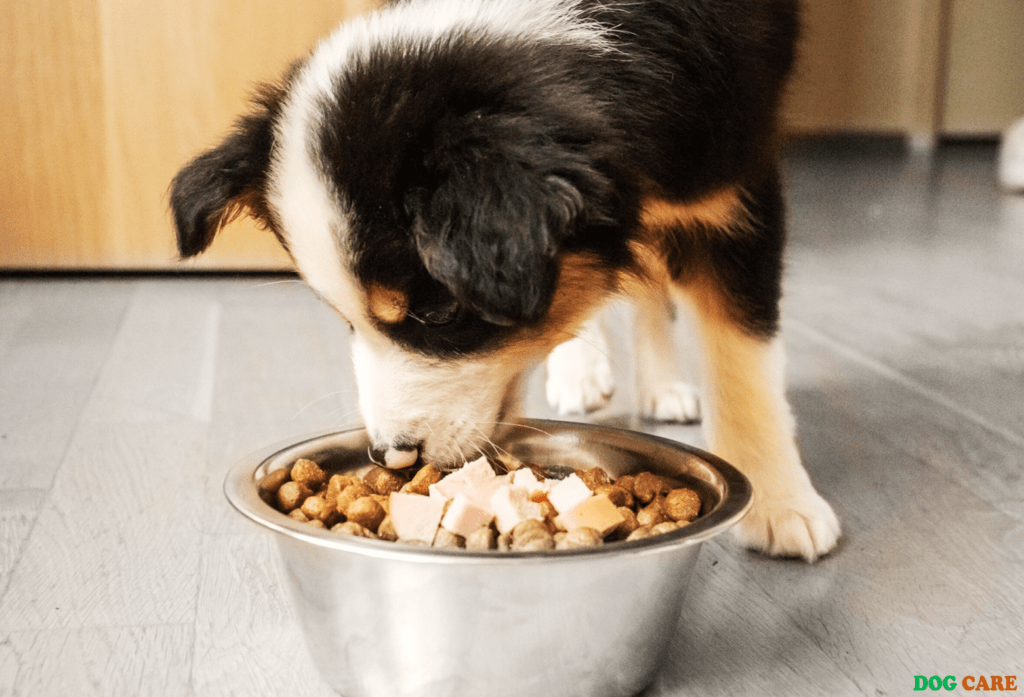Yes, dogs can safely eat wheatgrass as it provides many health benefits for them. Wheatgrass is considered a healthy dietary addition for dogs, cats, birds, reptiles, and other small animals due to its rich nutritional content such as vitamins, minerals, enzymes, amino acids, and chlorophyll.
It is gluten-free and can help fill nutrient gaps in your dog’s diet while offering important antioxidant protection. Wheatgrass can be consumed as fresh juice or powder, making it a versatile and safe superfood option for all dogs. Many pet owners incorporate wheatgrass into their pet’s diet to support their overall health and well-being.
Benefits Of Wheat Grass For Dogs
Wheatgrass offers numerous health benefits for dogs such as providing important antioxidants, filling nutrient gaps, and promoting overall well-being. It can be fed in fresh juice or powder form and is safe for all dogs.
Nutritional Content
Wheat grass is a true superfood for dogs, packed with essential nutrients that promote overall health and well-being. Rich in vitamins, minerals, and amino acids, wheat grass provides a complete nutrient profile to complement your dog’s diet.
Antioxidant Protection
In addition to its nutritional content, wheat grass offers vital antioxidant protection for dogs. The large amounts of chlorophyll in wheat grass help in neutralizing harmful free radicals and supporting a strong immune system.
Wheat grass is gluten-free when harvested from a growing wheat plant without any seeds, making it safe for all dogs. Whether served as fresh juice or powder, wheat grass provides important antioxidant protection and can be a valuable addition to your dog’s diet.
Risks And Considerations
When considering feeding wheat grass to your furry friend, it’s essential to be aware of potential risks and considerations.
Allergies And Sensitivities
Some dogs may have allergies or sensitivities to wheat grass, particularly if they have existing grain allergies.
Health Conditions To Consider
- Pregnant or breastfeeding dogs should avoid wheat grass to prevent any potential adverse effects.
- If your dog has a blood disorder, celiac disease, or gluten intolerance, consult with a veterinarian before introducing wheat grass.
Feeding Wheat Grass To Dogs
Wheat grass, often recognized as a powerful superfood for humans, can also provide numerous health benefits for our furry friends. Whether you want to help complete nutrient gaps in your dog’s diet or provide them with important antioxidant protection, wheat grass can be a great addition. However, it is essential to understand the proper dosage and different forms of wheat grass to ensure its safe consumption for your beloved pet.
Recommended Dosage
When it comes to feeding wheat grass to dogs, it is crucial to adhere to the recommended dosage. The appropriate amount of wheat grass largely depends on your dog’s size and weight. Here is a general guideline for the recommended dosage of wheat grass for dogs:
- Small Dogs: Provide approximately 1/4 to 1/2 teaspoon of wheat grass powder daily.
- Medium Dogs: Offer around 1/2 to 1 teaspoon of wheat grass powder daily.
- Large Dogs: Serve approximately 1 to 2 teaspoons of wheat grass powder daily.
It’s important to note that these dosages are approximate and can vary based on your dog’s specific needs. Always consult with your veterinarian before introducing any new supplements or dietary changes to your dog’s routine.
Forms Of Wheat Grass
Wheat grass for dogs can be obtained in various forms, including:
- Fresh Wheat Grass Juice: Freshly juiced wheat grass provides the highest level of nutrients. You can choose to grow your own wheat grass at home or purchase pre-juiced wheat grass from reputable sources.
- Wheat Grass Powder: This convenient form allows you to easily incorporate wheat grass into your dog’s diet. Simply sprinkle the recommended dosage on your dog’s food or mix it with water to create a wheat grass infusion.
The choice between fresh wheat grass juice and wheat grass powder ultimately depends on your preference and what works best for your dog’s dietary routine. Regardless of the form you choose, always make sure that the wheat grass you provide is organic and free from any harmful additives.

Credit: www.walmart.com
Comparison With Other Pet Grass
Dogs can eat wheatgrass, but it’s important to consider the differences between wheatgrass and other types of pet grass. Here are some important factors to consider:
Gluten-free Nature
Wheatgrass is gluten-free when harvested from a growing wheat plant without any seeds. It is the fresh sprouted leaves of the wheat plant, containing essential nutrients and beneficial properties without the presence of gluten, making it safe for consumption by dogs. This sets wheatgrass apart from other pet grasses with the presence of gluten, offering a safe and healthy option for furry friends.
Toxicity Concerns
It’s essential to consider toxicity concerns when offering pet grass to dogs. While wheatgrass is generally safe for dogs and provides various health benefits such as vitamins, minerals, enzymes, amino acids, and a significant amount of chlorophyll, some dogs may have sensitivities or allergies to it. It’s important to introduce wheatgrass gradually to monitor any adverse reactions and to seek advice from a veterinarian, especially for dogs with known wheat or grass allergies.
Expert Opinions
Discover whether dogs can safely consume wheatgrass and the potential health benefits it offers. Nourish your furry friend with this leafy green superfood that is packed with essential vitamins, minerals, and antioxidants, making it a safe and healthy addition to their diet.
Veterinary Perspective
Dogs can safely consume wheatgrass in moderate amounts without any harmful effects.
Nutritional Consultant Advice
Wheatgrass is a beneficial addition to your dog’s diet, providing essential nutrients and promoting overall health.
Conclusion: Is Wheat Grass Safe For Dogs?
Conclusion: Is Wheat Grass Safe for Dogs?
Overall Safety
Wheat grass is generally safe for dogs and can provide various health benefits due to its rich nutrient content, which includes vitamins, minerals, enzymes, amino acids, and chlorophyll. It is often considered as a superfood for pets and can be a valuable addition to their diet.
Considerations For Individual Dogs
While wheat grass is safe for most dogs, there are certain considerations for individual pets. Some dogs may have allergies to wheat or grass, and it’s important to monitor their reaction when introducing wheat grass into their diet. Additionally, pregnant or breastfeeding dogs or those with specific health conditions such as celiac disease or gluten intolerance should avoid consuming wheat grass.

Credit: www.youtube.com
Frequently Asked Questions
Is Wheat Plant Toxic To Dogs?
Wheat plant is non-toxic to dogs and can provide health benefits like aiding digestion.
Can Animals Eat Wheat Grass?
Yes, animals can eat wheat grass. It offers health benefits and is safe for dogs, cats, birds, and other small pets. It does not contain wheat gluten. Wheat grass provides nutrients and antioxidant protection and is free from known toxicities for dogs.
Who Should Avoid Wheat Grass?
Avoid wheat grass if pregnant, breastfeeding, chestfeeding, allergic to wheat or grass, blood disorder, celiac disease, or gluten intolerance.
How Much Wheat Grass Powder For Dogs?
Dogs can safely consume wheat grass powder as a nutritional supplement. It can be given in fresh juice or powder form, providing essential nutrients and antioxidant protection. There are no known toxicities or problems associated with giving dogs wheat grass.
Can Dogs Safely Eat Wheat Grass?
Yes, dogs can safely eat wheat grass as it provides many health benefits and is non-toxic to them.
Is Wheat Grass Suitable For Other Animals Too?
Yes, wheat grass is commonly used as a healthy dietary addition for cats, birds, reptiles, and other small animals.
Does Wheat Grass Contain Gluten?
No, wheat grass is harvested before it develops the gluten-forming grain, so it does not contain gluten.
Conclusion
Discover the safe and nutritious advantages of wheatgrass for your furry companion. Wheatgrass offers antioxidants and essential nutrients for your dog’s well-being. Embrace this natural supplement to support your dog’s health. Explore the benefits of wheatgrass and add it to your pet’s diet for a vibrant life.


